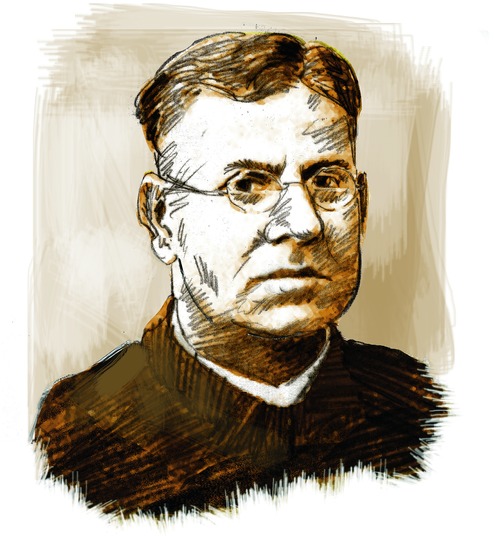
Chunilal Bose was a man way ahead of his times. He sought to spread awareness about the benefits of hygiene and sanitation in rural Bengal and spoke out against adulterated food as well as environmental pollution. A brilliant student of Chemistry and a medal-winning medical graduate, he spoke of the importance of a balanced diet and daily exercise in the early 20th century.
"The present Bengali diet is defective, ill-balanced and directly responsible for the progressive deterioration of the physical health of the people particularly of Bengal and is directly affecting their moral and economic well-being," wrote Bose.
In his 1917 address to the Science Convention, he pointed out the pit-falls of a rice-based diet - deficient in protein or muscle-forming constituent, and over-rich in carbohydrate elements - and suggested corrections that were effective and inexpensive. He proposed substituting rotis for rice at dinner - wheat having double the protein of rice - as well as increasing the quantity of dal consumed and decreasing the volume of rice. He advocated adding gram and coconut to vegetable curries for additional protein and fat and also suggested that fried or boiled gram or peanuts and bits of fresh coconut be added to puffed rice for a healthy snack.
One hundred years later, most Bengali households follow his prescription. It would, therefore, be fair to call Bose the father of dietetics and nutrition.
Bose was born in Calcutta in 1861. He joined what is now known as the Scottish Church College and then the Calcutta Medical College. His family circumstances were then straitened and he struggled to finance his medical studies but, in time, he proved to be an exceptional doctor.
Two articles by him, Prevention of Small Pox and Some Observations on Diabetes in India, are proof of his scholarship. In fact, the treatment he advised - regular exercise in the open air for diabetics and special attention to diet - holds true even today.
The assistant professor of Chemistry believed that education and awareness were key to reform and, wanting to educate the general public on the advantages of maintaining hygiene, he wrote the booklet Palli Svastha O Saral Svastha Bidhan (Village Health and Simple Rules for Health). He also published two booklets outlining the importance of food and water for good health.
Bose focussed on food adulteration that was rampant during World War I and suggested practical ways to tackle it. He was the Chemical Examiner of the Government of Bengal from 1889 to 1920 and his greatest achievement then was the passing of the Indian Poison Act that stopped the free sale of toxic substances.
For his contributions in the field of Chemistry, food science and medicine, the British conferred on him the title of Roy Bahadur in 1898. Bose was not just a chemist, doctor and social reformer but also an author. He wrote the biography of Sir Gurudas Banerjee as well as some literary pieces in Bengali.
In 1921, he was appointed the sheriff of Calcutta, a fitting honour for one who tried hard to make the life of citizens healthier.
The writer is a science historian and author of Science and Nationalism in Bengal










